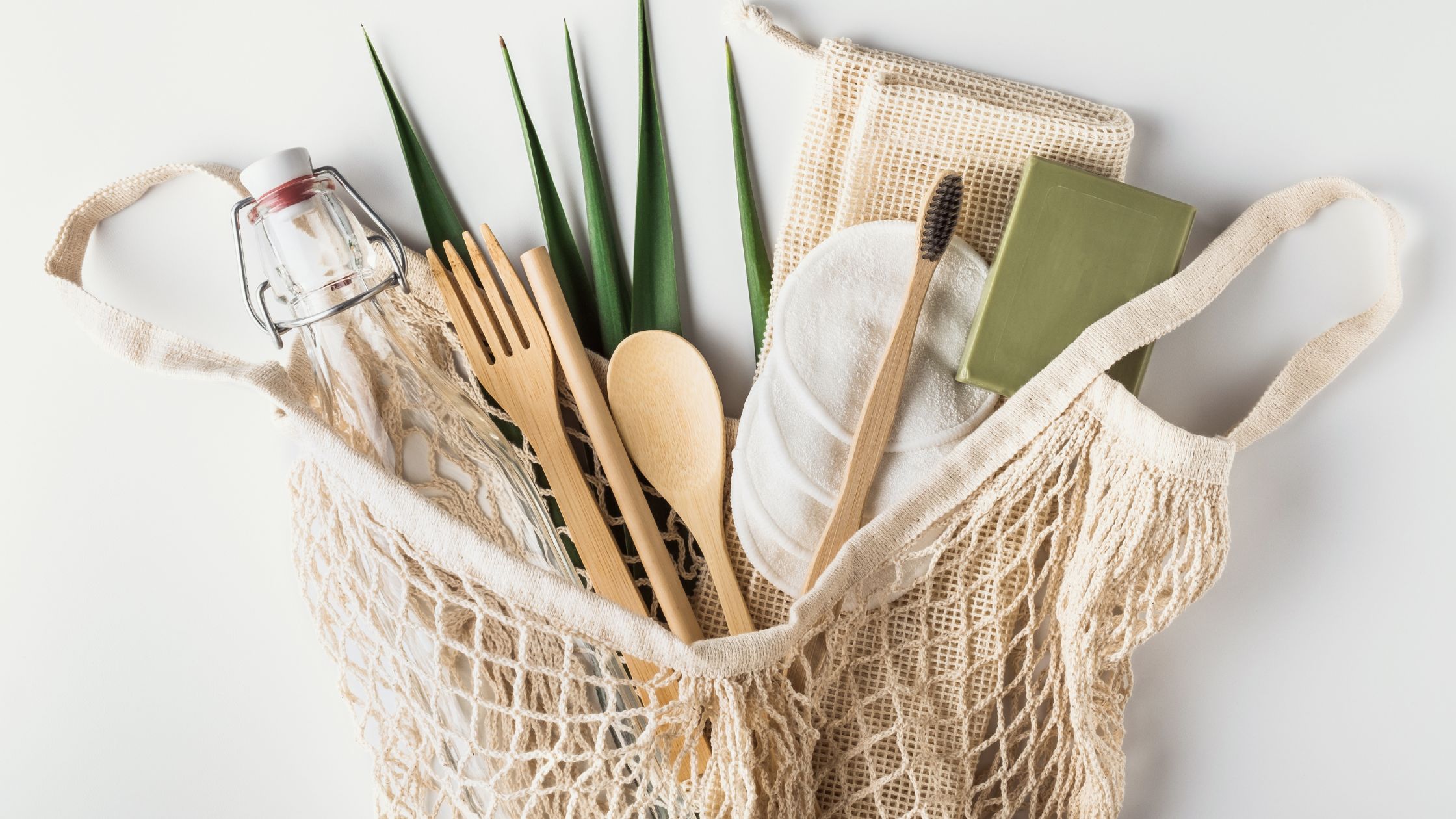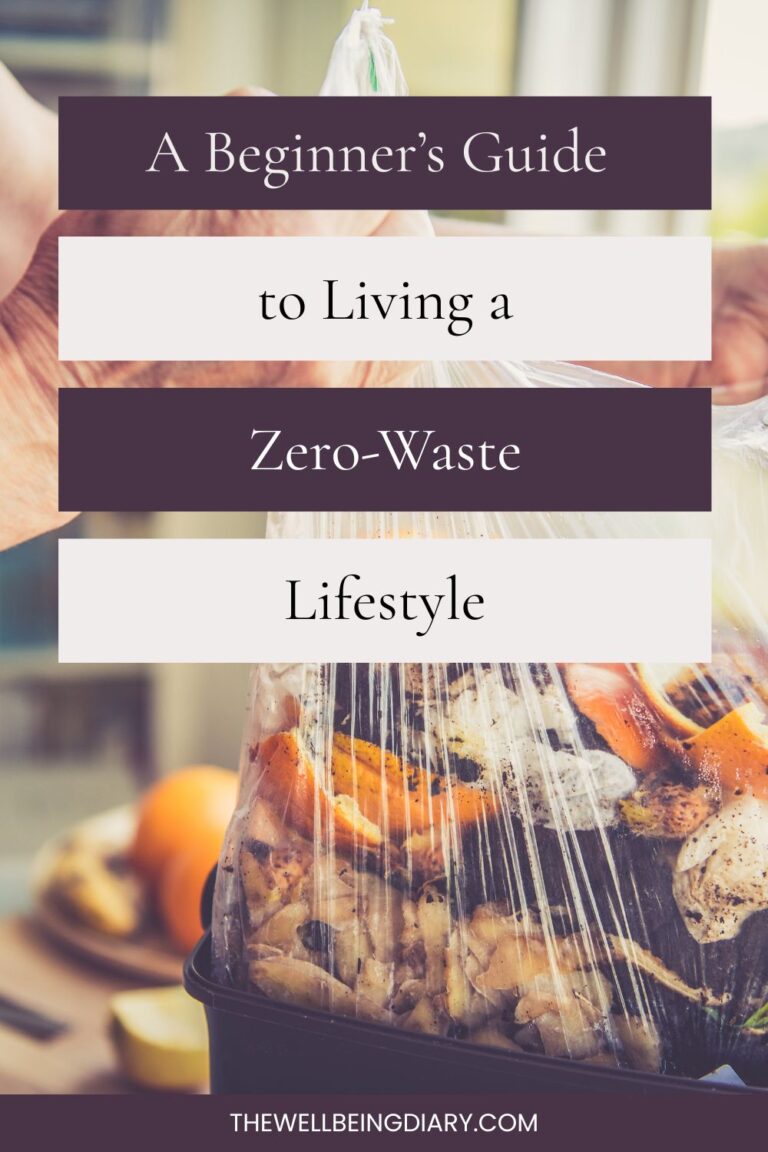A Beginner’s Guide to Living a Zero-Waste Lifestyle

Key Takeaways
How can I start a zero-waste lifestyle?
Start by identifying your waste habits, swapping disposables for reusables, avoiding plastic, learning proper recycling methods, composting, and supporting sustainable brands. Small changes lead to lasting impact!
The idea of reducing waste can feel overwhelming at first, but transitioning to a zero-waste lifestyle is all about making small, mindful changes that add up over time. Whether you’re inspired by minimalism, looking for eco-friendly alternatives, or simply aiming to reduce your environmental impact, this guide will help you get started on your journey.
What is a Zero-Waste Lifestyle?
A zero-waste lifestyle focuses on minimizing waste as much as possible by refusing, reducing, reusing, recycling, and composting. It’s about making conscious choices that help preserve the planet and reduce reliance on disposable products.
How to Start a Zero-Waste Lifestyle
Starting small is key. Here are a few steps to help you ease into waste reduction:
- Conduct a Waste Audit: Take note of what you throw away most often. This will help identify areas where you can cut back.
- Adopt Minimalism: A clutter-free, intentional lifestyle naturally leads to less waste. Focus on keeping only what you truly need and use.
- Make Sustainable Swaps: Replace single-use plastics and disposable items with reusable products. Start with simple changes, like swapping plastic bags for cloth totes or disposable coffee cups for reusable mugs.
- Say No to Plastic: Opt for plastic-free alternatives whenever possible. Bring your own containers for takeout, shop in bulk, and avoid individually wrapped products.
- Master Recycling Tips: Know what materials can and cannot be recycled in your area. Contaminated recyclables often end up in landfills, so learning proper sorting methods is essential.
- Embrace Conscious Living: Make informed decisions about your purchases. Support companies that prioritize sustainability and ethical practices.
- Start Composting: Food scraps and organic waste can be composted instead of thrown away, reducing landfill contributions.
- Reduce Energy and Water Consumption: Turn off lights when leaving a room, switch to energy-efficient appliances, and conserve water by fixing leaks and using water-saving fixtures.
- Educate Yourself and Others: Read books, watch documentaries, and follow sustainability influencers to stay motivated and spread awareness.
Short-Term Success: Quick Wins for Beginners
Embarking on a zero-waste lifestyle doesn’t have to be daunting. Here are some quick, achievable wins:
- Ditch single-use plastics: Use a reusable shopping bag, water bottle, and coffee cup.
- Switch to digital receipts and statements: Reduce paper waste by opting for electronic versions.
- Meal prep and plan: Reduce food waste by preparing meals in advance and buying only what you need.
- Try DIY cleaning solutions: Use natural ingredients like vinegar and baking soda for household cleaning.
- Say no to straws and cutlery: Carry your own reusable utensils and straws when dining out.
Building Green Habits for Long-Term Success
Developing habits that align with sustainability ensures long-term success. Here are some green habits to incorporate into your daily routine:
- Bring a reusable water bottle and coffee cup when out: This simple habit prevents unnecessary waste from plastic bottles and disposable cups.
- Use cloth napkins and towels instead of paper products: Over time, switching to reusable alternatives saves money and reduces paper waste.
- Choose secondhand or ethically made clothing over fast fashion: Buying quality, timeless pieces minimizes waste and reduces demand for unsustainable fashion.
- Repair broken items rather than replacing them: From clothing to electronics, repairing extends the lifespan of items and reduces waste.
- Plan meals to reduce food waste and buy only what you need: Meal planning helps reduce unnecessary purchases and ensures that food doesn’t go to waste.
- Grow your own food: Even a small herb garden can cut down on packaging waste from store-bought herbs and produce.
- Reduce packaging waste: Opt for bulk purchases, shop at zero-waste stores, and bring your own containers to reduce plastic waste.
- Use sustainable personal care products: Switch to shampoo bars, bamboo toothbrushes, and refillable beauty products.
- Be mindful of your travel footprint: Choose eco-friendly transportation options like biking, walking, carpooling, or using public transit.
Why Waste Reduction Matters
Reducing waste helps conserve natural resources, protect wildlife, and combat climate change. Every action, no matter how small, contributes to a healthier planet.
By adopting sustainability practices and making conscious choices, you can create a meaningful impact. Start today, and remember—progress is better than perfection. Your journey to a zero-waste lifestyle begins with one small step!
FAQ
What is a zero-waste lifestyle?
A zero-waste lifestyle aims to minimize waste through conscious choices like refusing, reducing, reusing, recycling, and composting.
How do I start living a zero-waste lifestyle?
Begin by conducting a waste audit, making simple swaps (like reusable bags and bottles), and adopting sustainable habits like composting and mindful shopping.
What are some easy zero-waste swaps?
Try reusable shopping bags, water bottles, and coffee cups. Use cloth napkins, swap plastic wrap for beeswax wraps, and buy in bulk with your own containers.
Can a zero-waste lifestyle save money?
Yes! Buying reusable products, repairing instead of replacing them, and reducing food waste can cut costs while benefiting the environment.
How can I reduce food waste at home?
Plan meals, store food properly, compost scraps, and repurpose leftovers to minimize waste and save money.
